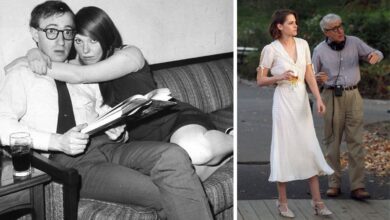The Influence of Philosophy for Lazio on Culture

Lazio, a region in central Italy, is not just home to the iconic city of Rome but also a treasure trove of cultural and historical riches. The influence of philosophy for Lazio culture is profound and multifaceted, shaping everything from its architecture and art to its traditions and cuisine.
Philosophy for Lazio: Historical Context
Ancient Philosophical Roots
RelatedAncient Philosophical Roots Lazio, previously known as Latium An uninterrupted cultural and intellectual hub of ancient origin. Roman civilization essentially emerged from the area, heavily influenced by Greek philosophy, of course. The Romans took the Greek philosophical ideas and added them to their practical approach (Roman). One can see this balance between philosophy and pragmatism reflected in the architectural marvels as wellas legal frameworks that have withstood the test of time. During the Roman Republic, philosophers like Cicero were critical in spreading philosophical ideas.
While his contributions to the legacy of Greco-Roman thought were largely in line with what Greek philosophers such as Plato and Aristotle had previously written, he tailored these teachings for Roman life-they spoke directly to values held by Romans. Claes’s influence on the intellectual scene of Lazio and the Roman world ended only when Alaric murdered him.
Medieval and Renaissance Influences
Lazio remained one of the centers of philosophy during both the Middle Ages and the Renaissance. The region was also fertile soil for the Scholastic movement which aimed to reconcile Christian theology with classical philosophy. Intelligent men, such as Thomas Aquinas were influentially active at this time and helped mold Aristotelian philosophies with Christian doctrine.
The Renaissance confirmed Lazio as an intellectual capital with the revival of classical antiquity. This was the period when humanism, an intellectual movement that influenced art and philosophy by attaching a new significance to man as a creative being whose work was fully entitled. The humanist scholars such as Petrarch and Pico della Mirandola who read ancient texts to discover a new perspective on the world based in viewing man with greater dignity than earlier thought. This intellectual resurgence also had widespread effects in the arts, literature and scientific discovery present throughout Lazio.
Philosophy for Lazio: Cultural Impact
Architecture and Art
The grand architecture and fine arts express the philosophical stratum at the cultural core of Lazio’s identity. The grandeur of the ancient monuments in Rome sends a powerful message in line with the Roman philosophy of order, symmetry, and endurance. The architects constructed the buildings to be functional and representational, and they also reflected philosophical principles of symmetry and balance.
Michelangelo and Raphael show humanist philosophy at work in the Renaissance. The ceiling of the Sistine Chapel, painted by Michelangelo, reaffirms that notion – the human can become divine. This is the reason that biblical scenes became a concept of human experience and portrayal, rather than merely images from divine instruction.
Traditions and Festivals
This rich tapestry of traditions and festivals in Lazio is full of philosophical meaning. Events such as the Carnival of Ronciglione and Saints Peter and Paul celebrations in Rome are not just a cultural milestone but also mirror the region’s philosophical legacy. They frequently focus on the renewal of spirit, community involvement, and the interconnectedness between all that is divine and planetary in a manner not dissimilar from ancient religious thoughts about life being cyclical or social unity.
Philosophy for Lazio: Cuisine and Everyday Life
Philosophical Influence on Cuisine
The influence of philosophy is alive and well in virtually every aspect of Lazio’s cuisine. The cuisine of the area is replete with earthy tastes and simple formulas reflecting an ethos similar to that of back-to-the-land cooking whereby natural ingredients are celebrated alongside the pleasures found in communities collectively sharing a meal. Pasta alla carbonara sweet, cacio e pepe salty, and saltimbocca engaged in romantic activities follow the Italian philosophy: la dolce vita (literally “the good life”) to which one must be willing to give her heart.
This emphasis on native resources and conventional, estranged cooking techniques really symbolizes a tie to the earth and an adoration for its goods—the exact qualities we find in… you got it: ancient poizoniny fiddle-faddle/local-first theory-economic habitus. The winemaking culture of Lazio reflects this strong relationship to the land, cherishing renowned wines such as Frascati and Cesanese del Piglio for their unique taste and invaluable cultural significance.
Daily Life and Modern Influence
In the modern Lazio region, philosophy continues to influence its emphasis on education, community building, and civic duty. Religious thinkers still exert a strong influence on local values and culture; medieval thought, prepared for the appetite of Renaissance humanists, is well ingrained into the intellectual roots. Higher education institutions, such as the University of Rome, are among many places where inquiry and intellectual scholarship have been done for generations in a philosophical tradition.
Philosophers and thinkers from Lazio have contributed to the global philosophical horizons, engaging a broad spectrum of cultural heritage in examining contemporary issues. The commitment of the region to maintaining its historical and philosophical tradition while accepting new ideas is further proof of how deeply ingrained philosophy is in its culture.
The Bottom Line
The impact of philosophy on the Lazio culture is deep and lasting. From the ancient forevery exit of Roman and Greek thought to humanist ideals in Renaissance, poznavalacafinskog misljenja have truly constellated region art as well architecture and tradition furthermore quotidianigoristicus. It goes without saying that this rich cultural background is still a source of inspiration for the inhabitants of Lazio making it as one lively and peculiar place. Recognising and respecting it, we then gain a profound understanding of Lazio’s soul – its stubbornly unproveable timelessness.





